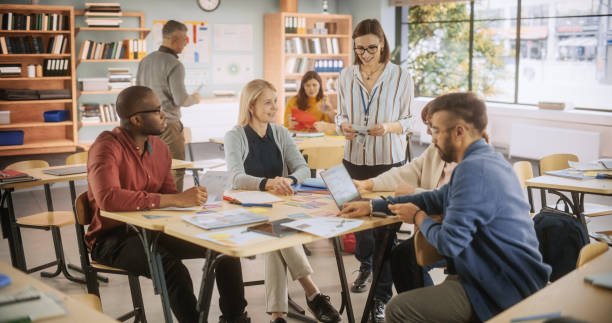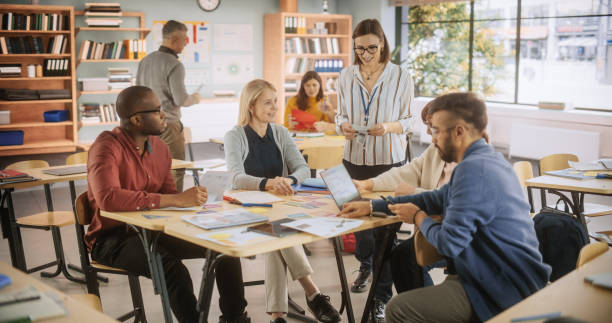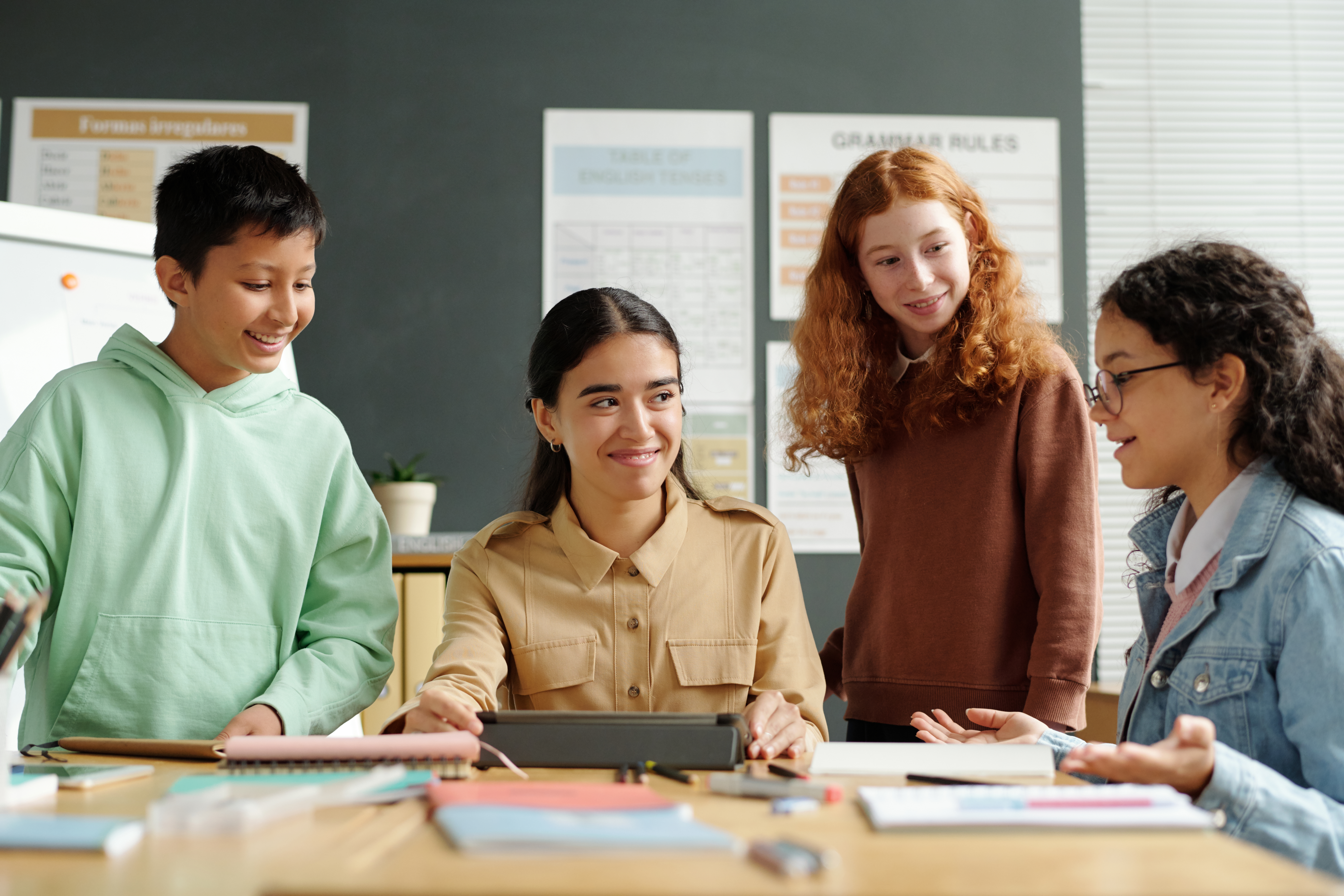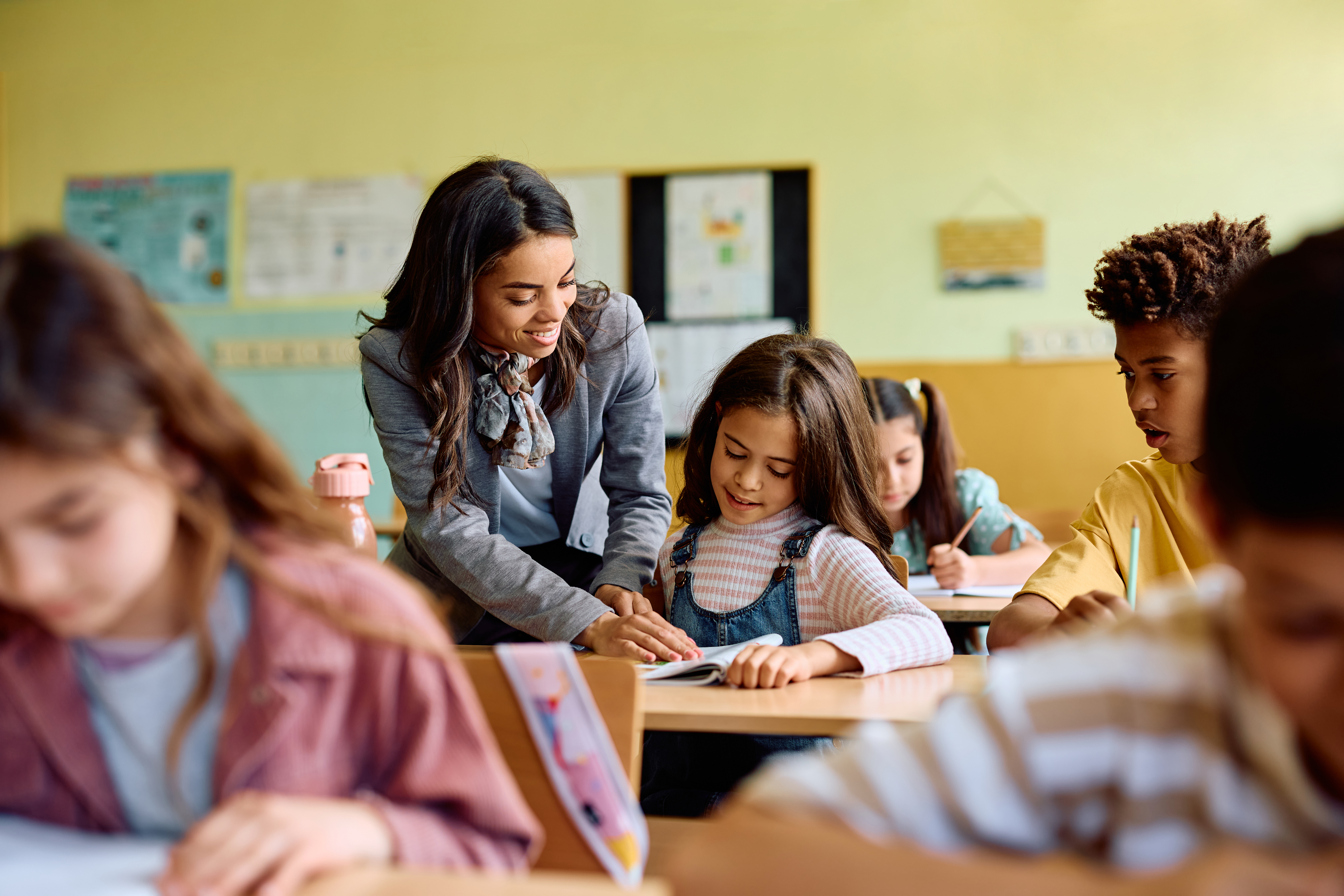
Diverse Multiethnic Young and Senior Adults Having a Fun Quiz Game Team Assignment, Undergoing a Workforce Training Program for Improving Connections and Relationships Between Employees
Top Strategies for Educators: Fostering Resilience and Confidence in Gifted Students
Gifted students face unique challenges that can impact their confidence and resilience. As an educator, you hold the key to unlocking their potential and guiding them toward emotional wellness. Imagine equipping these bright minds with the tools they need to thrive, not just academically, but personally. In this blog post, we’ll explore practical strategies designed to strengthen the resilience and confidence of gifted students. Ready to empower your students to shine brightly in every aspect of their lives? Let’s dive in. [https://www.escco.org/AddressingtheSocial-EmotionalNeedsofGiftedStudents.aspx]
Building Emotional Resilience

Building emotional resilience in gifted students is crucial for their overall development. These students face challenges that require tailored support. This section explores understanding their unique hurdles, fostering self-reflection, and encouraging healthy coping skills.
Understanding Gifted Students’ Challenges
Gifted students often encounter unique obstacles that can hinder their emotional growth. Understanding these challenges is the first step toward providing effective support. Many gifted students face perfectionism, social isolation, and heightened sensitivity.
For instance, Genie Academy explains that these students may struggle with feeling different from their peers. This sense of isolation can lead to anxiety and stress. Recognizing these challenges allows educators to tailor their approach to meet individual needs.
It’s crucial for educators to create environments where these challenges are acknowledged and addressed. By doing so, students feel understood and supported. This understanding forms the foundation of emotional resilience, allowing students to navigate their unique experiences with confidence.
Encouraging Self-Reflection and Awareness
Self-reflection is a powerful tool for building resilience. Encouraging students to reflect on their thoughts and emotions helps them develop self-awareness. This process allows them to understand their reactions and manage their feelings effectively.
Educators can guide students through self-reflection by asking open-ended questions. For example, “What emotions did you experience today?” or “How did you handle a difficult situation?” This practice helps students identify their emotional patterns and triggers.
Additionally, incorporating journaling or mindfulness exercises into daily routines can foster self-awareness. These practices provide students with a safe space to explore their emotions, leading to greater emotional intelligence and resilience.
Promoting Healthy Coping Mechanisms
Gifted students benefit from learning healthy coping mechanisms to manage stress and anxiety. Educators play a pivotal role in teaching these skills. Techniques such as deep breathing, meditation, and physical activity are effective ways to cope with emotional challenges.
According to Psychology Perspective, physical activities like yoga can help students release tension and improve focus. Encouraging students to engage in these activities can enhance their emotional resilience.
Providing a variety of coping strategies allows students to choose what works best for them. This personalized approach empowers students to take charge of their emotional well-being, fostering resilience in the face of challenges.
Boosting Student Confidence

Confidence is key to a student’s success. Creating a supportive environment, celebrating achievements, and encouraging risk-taking are essential components in building confidence. This section delves into strategies that empower students to reach their full potential.
Creating a Safe Learning Environment
A safe learning environment is foundational for boosting confidence. When students feel safe, they are more likely to take risks and engage in learning. Creating this atmosphere involves establishing trust and respect between educators and students.
Educators can foster this environment by setting clear expectations and offering consistent support. Encouraging open communication further enhances the sense of safety. Students should feel comfortable expressing their thoughts and concerns without fear of judgment.
Additionally, NAGC suggests implementing classroom activities that promote collaboration. Working together helps students build relationships and develop a sense of belonging, boosting their confidence.
Celebrating Achievements and Growth
Recognizing and celebrating achievements is a powerful way to boost confidence. It reinforces students’ efforts and motivates them to continue striving for success. Celebrations should focus not only on results but also on personal growth and effort.
Educators can celebrate achievements by:
Acknowledging individual progress: Highlighting improvements, no matter how small, encourages students to keep pushing forward.
Sharing successes with peers: Public recognition boosts morale and inspires others.
Setting personal goals: Encouraging students to set and achieve their own goals fosters a sense of accomplishment and self-worth.
By celebrating both achievements and growth, educators inspire confidence and resilience in students.
Encouraging Risk-Taking and Mistakes
Taking risks and learning from mistakes are integral to confidence building. Educators should encourage students to step outside their comfort zones and view mistakes as learning opportunities. This mindset shift fosters resilience and confidence.
To encourage risk-taking, educators can:
Provide supportive feedback: Help students see mistakes as a natural part of learning.
Model vulnerability: Share personal experiences of overcoming challenges.
Foster a growth mindset: Emphasize that abilities can be developed through effort and perseverance.
By promoting risk-taking and normalizing mistakes, educators help students build confidence and resilience. Gifted Challenges suggests that viewing mistakes as learning experiences empowers students to face challenges head-on.
Practical Support Strategies

Providing practical support is essential in fostering resilience and confidence. This section outlines strategies to create personalized learning plans, build support systems, and offer resources for emotional wellness.
Implementing Personalized Learning Plans
Personalized learning plans cater to the unique needs of gifted students. These plans help students set goals, track progress, and identify areas for improvement. Tailoring education to individual strengths and challenges enhances engagement and motivation.
To implement a personalized learning plan:
Assess individual needs: Identify students’ strengths, weaknesses, and interests.
Set specific goals: Collaborate with students to set achievable objectives.
Monitor progress: Regularly review and adjust plans to ensure continued growth.
Personalized learning allows students to take ownership of their education, fostering confidence and resilience.
Establishing Mentor and Peer Support Systems
Mentor and peer support systems provide valuable guidance and encouragement for gifted students. These relationships offer a sense of belonging and help students navigate challenges.
Mentors can be teachers, older students, or professionals with similar interests. By sharing experiences and knowledge, mentors inspire and support students in their personal development.
Peer support groups encourage collaboration and understanding. Students learn from each other’s experiences, fostering empathy and resilience. Addressing the Social-Emotional Needs of Gifted Students highlights the importance of these connections in building emotional wellness.
Providing Resources for Emotional Wellness
Access to resources for emotional wellness is crucial for supporting gifted students. These resources offer students tools to manage stress, anxiety, and other emotional challenges.
Educators can provide resources such as:
Workshops on emotional intelligence: Teach students how to understand and manage their emotions.
Guided mindfulness exercises: Help students develop focus and relaxation skills.
Counseling services: Offer professional support for students facing significant challenges.
By equipping students with these resources, educators empower them to develop resilience and confidence. 🌟

A certified Heal Your Life® Coach with 20+ years in education and emotional development. Supports gifted teens in navigating anxiety, perfectionism, and identity challenges, while equipping parents with practical tools for lasting transformation. Sessions blend emotional healing, mindset mastery, and strategic empowerment.



